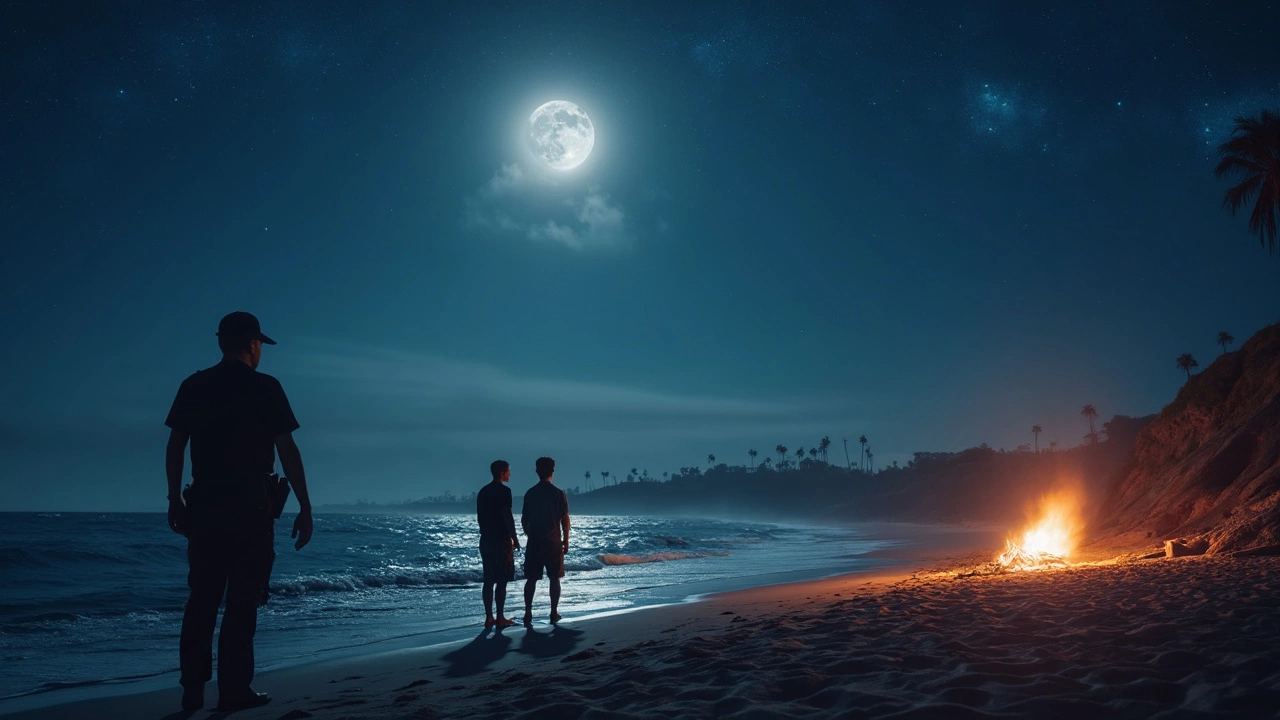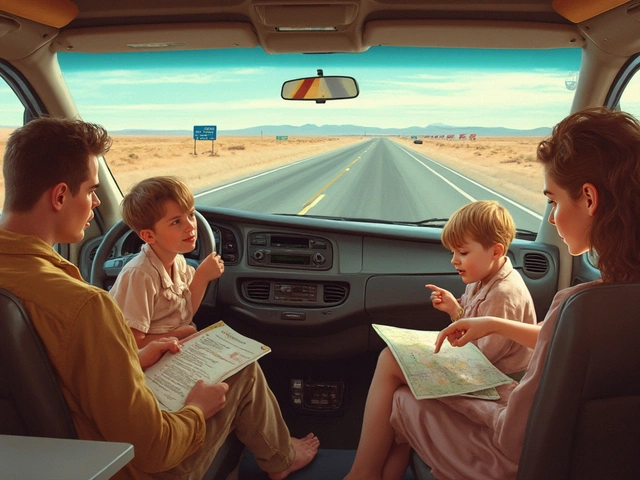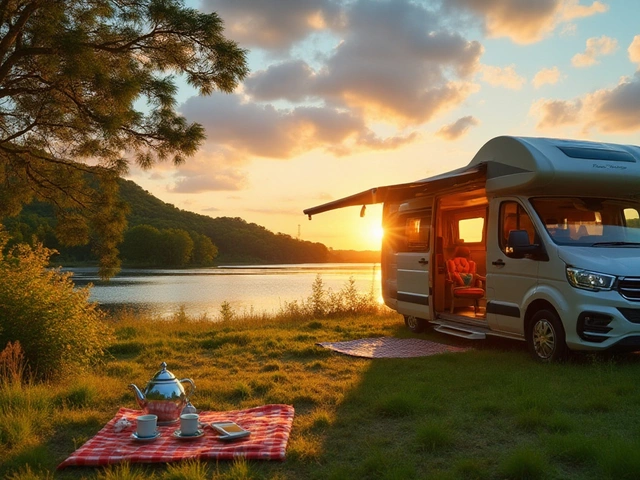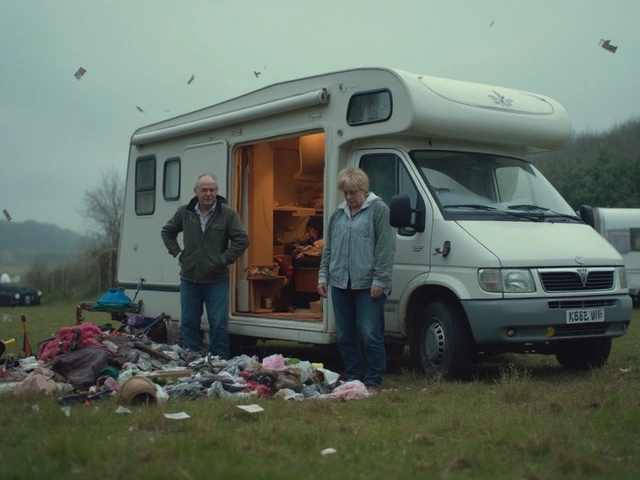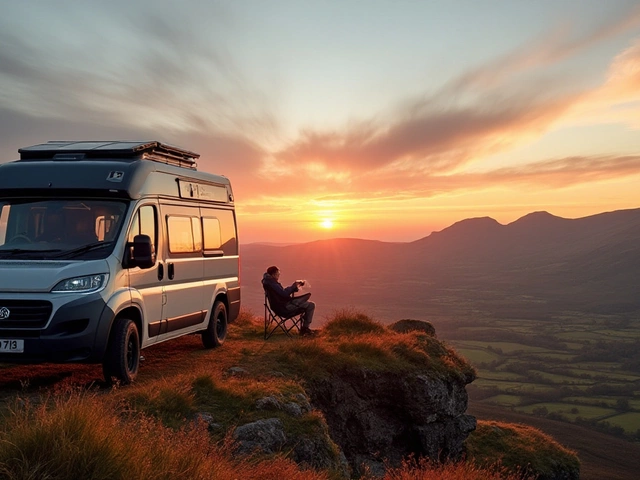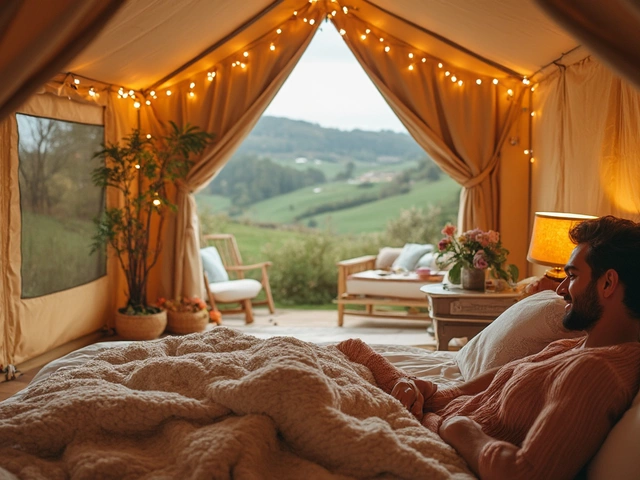Here’s one thing that catches a lot of people off guard: In most places in California, you can’t just sleep overnight on any beach you want. A midnight nap on the sand might sound chill, but local laws and park rules often say otherwise. The rules aren’t the same everywhere, either—some beaches ban overnight stays flat out, while others only allow it at special campsites with a paid reservation.
If you’re caught snoozing outside designated spots, you could get hit with a fine, or at the very least, a not-so-friendly wake-up call from a ranger or local police. A lot of beaches lock their parking and shut down access right at sunset to stop people from camping out. Don’t assume the rules are relaxed just because the coast looks wide open.
- California’s beach sleeping laws explained
- Where is it actually allowed?
- Risks and penalties for breaking the rules
- Smart alternatives for overnight beach stays
- Tips for a stress-free beach camping trip
California’s beach sleeping laws explained
First thing to know: the laws about sleeping on the beach in California are strict, and they’re enforced by city, county, and state agencies. The idea is to protect wildlife, prevent parties from getting out of hand, and avoid problems like trash or fire danger. So, don’t take a blanket and expect to snooze anywhere.
If you check the California State Parks website, you’ll see a clear policy—overnight camping is only legal in marked campsites, not just anywhere on the sand. Want to sleep overnight on a public beach? You’ll usually need a paid reservation at a beachfront campground, like the ones at Leo Carrillo or Carpinteria State Beach. City and county beaches are even less forgiving, often banning sleeping entirely outside of official campsites.
Local city codes can make things extra confusing. For example, in Los Angeles, Municipal Code 63.44 prohibits staying after posted hours, and those hours are almost always sunset to sunrise. San Diego? Same deal. Even if you claim you’re just "resting your eyes," being there after hours can lead to a citation.
| Popular Beach | Can You Sleep Overnight? | Do You Need a Permit? |
|---|---|---|
| Venice Beach (LA) | No | N/A |
| Carpinteria State Beach | Yes, in campground | Yes |
| Malibu Surfrider | No | N/A |
| San Elijo State Beach | Yes, in campground | Yes |
The goal here: keep beaches clean, safe, and available to everyone. That’s why you see so many posted rules and regular patrols at night. If you want to play it safe, always look up the rules for the exact beach before you decide to bunk down. This isn’t something you want to "wing it" with—getting caught can get expensive, fast.
Where is it actually allowed?
Think you can just toss down a sleeping bag on any California beach? Not so fast. The truth is, sleeping overnight on the sand is usually off-limits—unless you’re in a designated beach camping area. California has some awesome spots just for this, but they’re pretty specific and need planning.
Most state beaches don’t allow overnight sleeping unless you book a campsite. Here are a few well-known beaches where beach camping is legit, as long as you’ve got a reservation:
- Crystal Cove State Park (Orange County): The Moro Campground offers spots within walking distance of the sand. No actual tent camping on the shore, but you can fall asleep to the ocean nearby.
- San Elijo State Beach & South Carlsbad State Beach (San Diego County): Both offer campsites right on the bluff above the beach, with ocean views and quick sand access.
- Refugio and El Capitan State Beaches (Santa Barbara County): You can book campsites just steps from the waves, though the actual waterline is still off-limits for tenting.
- Dockweiler State Beach (Los Angeles County): This is one rare spot in LA with RV camping right on the sand. No tents, but it’s the closest thing to legal overnight beach sleeping in the area.
If you’re hoping to camp on a public California beach without a permit, chances are high you’ll get kicked out (or fined). Beach access cities like Santa Monica, Malibu, and Huntington Beach have strict rules enforced by local police and lifeguards. Even if it feels like nobody’s watching, rangers usually patrol after sunset.
There are also some private beaches or coastal ranches that allow overnight stays for a fee, but these aren’t public. Always double-check the official website a few weeks ahead—popular spots fill up months in advance, especially during summer weekends.
Here’s a quick look at a few top legal beach campsites in California, including average nightly fees for 2025:
| Beach Campsite | Type | Nightly Fee |
|---|---|---|
| Crystal Cove Moro Campground | Tent/RV | $55–$75 |
| San Elijo State Beach | Tent/RV | $50–$65 |
| Refugio State Beach | Tent/RV | $50–$60 |
| Dockweiler State Beach | RV | $70–$90 |
Bottom line: Do your homework before you pack the sleeping bag. The best shots at legal overnight stays are in official campgrounds, not out on the open sand.
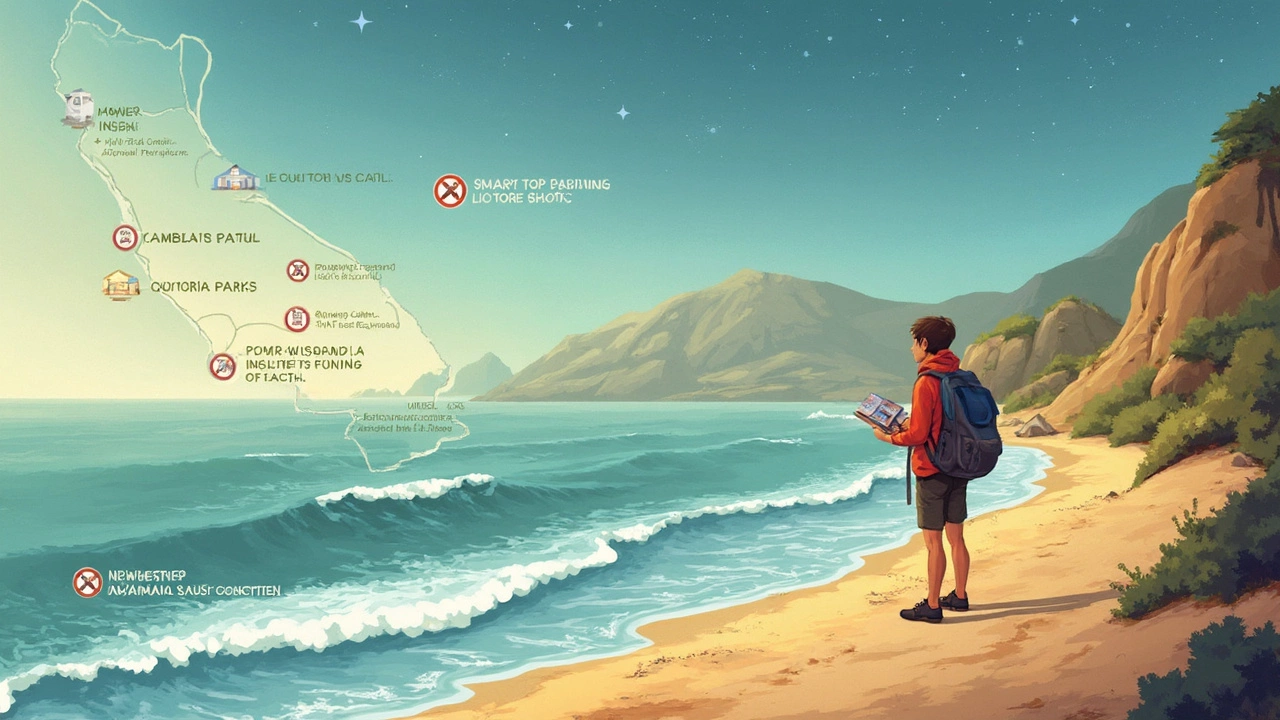
Risks and penalties for breaking the rules
Just falling asleep on a beach in California and hoping for the best can backfire fast. In a lot of spots, even pitching a small tent or rolling out a sleeping bag outside official beach campsites is a violation. Cops or rangers usually patrol, especially near cities or popular stretches like Santa Monica, Malibu, and Huntington Beach.
Get caught? The most common outcome is a ticket for violating city or county ordinances. Fines usually run between $100 and $500, depending on where you are. Local rules sometimes add a fee for breaking curfew hours or trespassing if you’re there after parks close (which is often sunset or 10:00 pm).
| Location | Potential Fine (USD) | Typical Enforcement |
|---|---|---|
| Los Angeles County Beaches | $141-$500 | Night patrol, ticketing, possible arrest |
| Santa Cruz | $200-$300 | Tickets and warnings |
| San Diego County Parks | $100-$250 | Ticket and asked to leave |
That’s not all. If you refuse to leave or get caught more than once, some areas will bump charges up to a misdemeanor, which means you could end up in court. Plus, they might tow your car if you try sleeping in your vehicle on the street or parking lot. Police in a few places, like Laguna Beach, are known for taking enforcement seriously and even charging folks with trespassing.
There's also the non-financial side. Surfboards, wallets, and sneaky raccoons can vanish while you sleep. You might get woken up in the middle of the night and told to move right away—a real buzzkill if you’re hoping to get rest.
The bottom line? Avoid chancing it if you want your California beach camping night to end well. The risks and penalties aren’t worth a few hours with the sound of waves, especially when there are legal options available just a few steps away at actual beach campsites.
Smart alternatives for overnight beach stays
Just because you can’t roll out a sleeping bag anywhere on the sand doesn’t mean your plans for a night by the ocean are shot. There are legit ways to enjoy an overnight beach vibe in California without worrying about breaking the sleeping on the beach laws or waking up to a ticket. Here’s the real deal on your best options.
- Camp at Designated Beach Campsites: Many state and county beaches have official beach camping spots. Places like Doheny State Beach in Orange County and Refugio State Beach near Santa Barbara offer campsites just steps from the sand. You need a reservation (they fill up fast in summer), but these sites have bathrooms, showers, and sometimes even fire pits.
- Book a Beachfront Cabin or Yurt: If you like a roof over your head, check state parks like Crystal Cove and El Capitan, where you can rent beach cabins or yurts. These spots give you that full oceanfront experience—without worrying about the weather or park rangers.
- RV Camping: Love van life? A lot of California beaches, like Carpinteria State Beach and Dockweiler RV Park, have overnight spots for RVs. Keep in mind, you can’t just park anywhere; you have to use the designated beach campsites and follow the hours strictly.
- Group Campouts: Parks like Leo Carrillo State Park sometimes offer group camping for a handful of friends or families. It’s great for birthday parties or just a group night under the stars—with a bonfire and s’mores, legally.
- Glamping Options: Want more comfort? Sites like Costanoa south of Half Moon Bay blend outdoor fun with cozy tents that have beds, heat, and electricity. It’s pricier but saves you the hassle of bringing gear.
If you’re budget-conscious, don’t overlook backpacking-only sites like those at Point Mugu State Park. You’ll need to hike in, but it’s worth it for a quieter experience. Just remember: Always make reservations and check the specific rules for each place—some don’t allow fires, and some have quiet hours starting at 10 p.m.
Here’s a quick look at how some popular spots stack up for overnight rules and amenities:
| Beach | Overnight Allowed? | Amenities |
|---|---|---|
| Doheny State Beach | Yes (designated sites) | Showers, restrooms, fire pits |
| Refugio State Beach | Yes (designated sites) | Restrooms, BBQ grills |
| Crystal Cove | Cabins only | Cabins, restrooms |
| Generic City Beaches | No | Day-use only |
| Dockweiler RV Park | RVs only | Full hookups, beach access |
If campsites are booked solid, scan the ReserveCalifornia website often—last-minute cancellations happen. And always pick up your trash and respect noise rules. It keeps these beach camping spots open for everyone. Easy, right?

Tips for a Stress-Free Beach Camping Trip
If you want your night on the sand to go well—and legally—there are a few simple but key steps you definitely shouldn't skip. Here’s what makes a difference for everyone chasing that perfect beach camping vibe in California.
- Book a legit spot: Pick a state beach or local campground that specifically lists overnight beach campsites. California State Parks like San Elijo, Leo Carrillo, and Refugio let you reserve ahead—don’t wait until the last minute because these fill up fast (some go in minutes when reservations open 6 months out).
- Check the fire rules: Most beaches only allow fires in designated rings—if at all. Bring a portable stove instead of banking on a classic campfire. Rangers do check, and fines for sneaky fires are no joke.
- Respect quiet hours: Almost every beach camping area has strict rules, usually kicking in between 10pm and 6am. You don’t want to be the person blasting music or stuck in a midnight argument with neighbors or staff.
- Bring the right gear: Fog can roll in quick and the temps drop hard at night, even in summer. Don’t just bring a blanket—think warm sleeping bags, extra layers, and a tarp in case the dew is thick.
- Leave zero trace: California beaches are a magnet for wildlife and families, so gather up every scrap of trash, pack away leftovers, and use the bathroom (not the dunes).
- Know the permit rules: Some places (like certain Orange County and LA County beaches) require you to display a camping permit at all times—stick it in your window or wherever is obvious.
If you’re curious which state beaches are most popular, here’s a quick look at 2024 reservation numbers:
| Beach Campsite | 2024 Reservations |
|---|---|
| San Elijo SB | 38,200 |
| Leo Carrillo SB | 22,500 |
| Refugio SB | 17,890 |
If you can’t land a reservation, look for walk-up spots right when parks open—but have a backup plan ready since these go quick too.
By following these tips, you steer clear of hassle with rangers, local cops, or early check-out surprises, and actually get to relax by the waves. Trying to wing it rarely works. When it comes to sleeping on a California beach, some planning doesn’t just pay off, it saves your whole trip.
